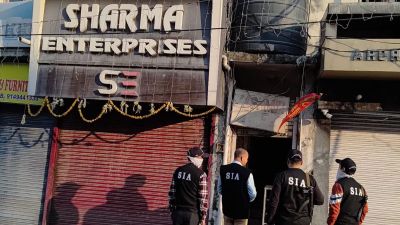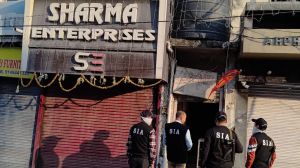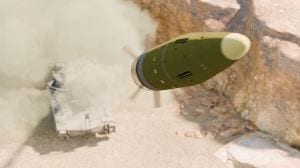Ghosts of the British empire
Two sets of hostage crises are engaging our attention: 250 of our officersand jawans are hostage in Sierra Leone and a prime minister of I...

Two sets of hostage crises are engaging our attention: 250 of our officersand jawans are hostage in Sierra Leone and a prime minister of Indian originand his native Fijian cabinet colleagues are hostage in Suva. There arecommon elements in the two theatres: the British were the colonial mastersin both countries and Indians or people of Indian origin are involved.
It is a remarkable feat that in both former colonies the British are placedon a high pedestal. The Fijian chiefly order regards the British monarch asits very own. After Col Stiveni Rabuka’s coup in 1987, Fiji’s general, thelate Ratu Penaiya, was in tears. "What has hurt us most is not the death ofdemocracy but that our links with the British crown have been severed." Hewas talking to me about Fiji’s expulsion from the Commonwealth. Remember,Fiji requested Britain to stay on and delay independence in the ’60s.
But despite the chiefly order’s adoration for the British crown, Fiji, underRabuka, remained outside the Commonwealth until constitutional review wasundertaken by Sir Paul Reeves of New Zealand in 1997. Rabuka’s recordedinterview with me soon after the 1987 coup is in tone and substance not verydifferent from what George Speight is saying now. "This country belongs toFijians," he said. "Indians will have to stay on our terms." My guess is,once Speight and the army sign an agreement on an interim administration,and the hostages are released, a volatile political situation will openup.
Indian diplomacy, in this instance, has obvious limitations. The conflict inFiji is, after all, an intra Fijian affair. An ov-ert Indian role can onlyrecoil on those in search of a multi-ethnic society. But Commonwealthdi-plomacy will be on test, particularly the efforts by Australia and NewZealand. Fijian circles in Suva appear to be almost unrealisticallysanguine. If Rabuka’s apartheid regime could last a decade, why will theSpeight enterprise not last at least a couple of years? Should apartheid beentrenched in Fiji, it would be interesting to know the response of"humanitarian intervention" theorists mushrooming in Washington, London,Canberra. What was sauce for the gander in Kosovo could be sauce for thegoose in Fiji. Agreed, the two situations are different but in the game ofinternational power, who reads the fine print once the mind is made up?Also, some lessons learnt in Sierra Leone could find application in Fiji.
As a regular at Paddy’s, the very English pub in Freetown, announced at thetop of his voice: "Her Majesty’s Government is not averse to mercenaries(Sandline) in Sierra Leone, why would mercenaries not come in handy inFiji?" Mercenaries do not work for sugarcane, silly, someone responded.
The future of the 250 Indian soldiers in Kailahun and Pendembu lo-oks moreand more precarious. The delegation of MEA and Defence Ministry officialsled by Gen Nirmal Vij has returned after probing all options. The teamvisited Freetown, Daru, Rogberi, the bases wh-ere the Indian con- tingentsof UNAMSIL are deployed. From Freetown, they travelled to New York,Washington and London. Bernard Miyet, in charge of UN peacekeepingoperations, heard them with sympathy but offered no way out.
More to the point, ECOWAS (Economic Community for West African States)ministers who visited Sierra Leone and Liberia (Charles Taylor is presumedto hold all the aces) are even as I write apprising the Security Council onwhat can and cannot be done.
Meanwhile, a letter written by President Kabah of Sierra Leone to SecretaryGeneral Kofi Annan, seeking Foday Sankoh’s trial by a tribunal, has beenleaked to the New York Times. These days Kabah does not even breathe withoutconsulting the British who are administering his police and militaryservices and training the Sierra Leone army. Therefore, important permanentmembers of the Security Council are likely to reject ECOWAS advice if itcontradicts Ka-bah’s request to Kofi Annan.
Taylor says that the way to obtain the release of Indian troops is to resumethe peace process in Sierra Leone, which is what the Lome accord of July1999 entails, and transfer Foday Sankoh to a neutral country. When Gen Vijalong with Naresh Chandra met Under Secretary of State Thomas Pickering andAssistant Secretary of State Karl Inderfurth, the delegation was assured allhelp. Ambassador for Africa Jesse Jackson has been asked to speak to WestAfrican leaders. Bill Clinton has spoken to Kofi Annan.
In London, the Indian delegation sat through a "presentation" on SierraLeone by the Crisis Management Committee at the Ministry of Defence. SinceBritain has abiding interests and influence in Freetown (now even a militarypresence), would it not be a good idea that they contribute a battalion toUNAMSIL and thereby strengthen the UN mission? When this suggestion was madeby the Indian delegation, the British officials looked the other way.
So, there is frenetic diplomatic activity running fast to stand still.Meanwhile, heavy rains are round the corner in Sierra Leone which will makethe escape route for the 250 Indian soldiers to battalion headquarters atDaru, a distance of 73 km, totally inaccessible. By the time escape isplotted and executed, the monsoon session of Lok Sabha will have begun.Indeed, this is the time for all of us to keep our fingers crossed.





- 01
- 02
- 03
- 04
- 05


























